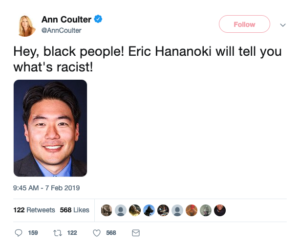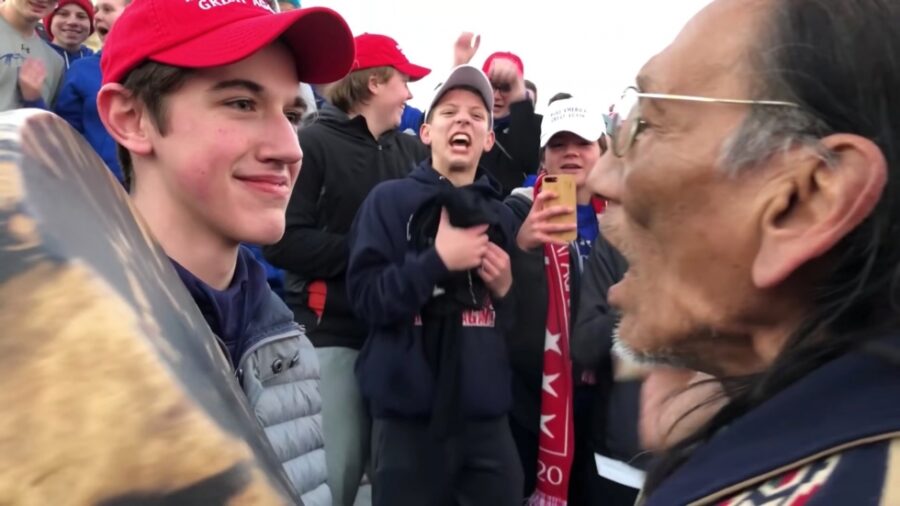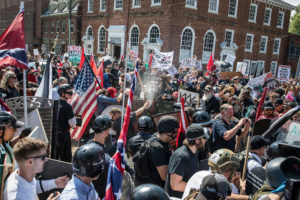A Saudi journalist was on the radio the other day commenting on a striking familiarity he noticed about recent media coverage of American Trump supporters. He described it in one word: Orientalism. I immediately understood what he meant. Edward Said gave shape to the concept of Orientalism as a predominantly “western” (European and American) way of “othering” Arab and Asian peoples by exaggerating and distorting exotic differences in ways that suggest iconoclasm, backwardness, incivility, and even insidiousness or danger. Media Orientalism toward middle easterners today is often evident in the way majoritarian media adopts a tone of condescension and even incredulity toward their Arab subjects.
It was precisely this tone of pandering condescension, even hostility, that this journalist was recognizing, except that this treatment was experienced by a group radically distinct from his own: conservative, populist Americans (the kind wearing MAGA caps and attending Trump rallies). It is increasingly common for certain white Americans to name their current experience in their country in terms of racism. Portrayals in film and television are pitting “resistance” white Americans against dangerous, gun-toting, Handmaid’s Tale, white Americans with ever-increasing familiarity. Red MAGA caps, NRA memberships, Lock-Her-Up chants are now short-handing as proxies for a contingent of Americans to be feared, distrusted, and consternated upon.
This was dramatized this past month from the firestorm emerging from the picture of the Covington High School student wearing the MAGA cap smilingly at a chanting Native American. The image itself was a Rorschach blot for different kinds of Americans. Those who instinctively saw the smirk of a smug, perhaps even dangerous “punk” and reacted accordingly – it was argued that they were guilty (the media included) of nothing short of racial prejudice. They refused to see “the whole story” but rather were only confirming their own biases. They saw white males in red caps as totems casting such persons as villains in the story (no other countervailing facts need apply).
I am not suggesting that we condone truly offensive and bigoted behavior that can be true of Trump-voters. Nor am I baldly asserting that there are “very fine people on both sides.” I am, however, suggesting we rethink the ways in which we categorize and map one another toward clumsy, and ultimately hostile patterns. It took a foreign reporter on the radio to comment on something I had been largely blind to — large groups of white people in America are being judged, villainized, and ‘othered’ in ways that had previously been reserved for the exotic, dangerous, and subversive “Orientals” of western history. It’s not an exact match to be sure — white Americans do not share the history of violence, dispossession, and systemic legal discrimination eastern and middle-eastern immigrants have faced in this country. But this shouldn’t take away the fact that there are salient points of connection between these experiences that few see and even fewer are willing to talk about.
“Orientalism” and Race-Discourse
The question of what so-called “Orientals” can contribute in the discussion of racism and identity in America (and elsewhere) took on a new salience this week when Ann Coulter went on a sadly familiar Twitter tirade against an Asian journalist. When an Asian reporter commented on how ICE officials are subscribing to Coulter’s conservative agenda, she responded directly: “An Asian is going to explain racism to us. Apparently it has nothing to do with black people. It’s all about IMMIGRANTS.” Or again: “Oh! I just thought of a new civil right for you guys at Media Matters to celebrate: Asians & Jews who think they’re black.”

None of this is intended to conflate Ms. Coulter’s childish trolling with the way real people think. But it does serve to highlight a paltry lack of categories when it comes to certain kinds of race discourse in America. In this view, racism is still strictly a matter of white-black binaries. Asians, muslims, and other non-white immigrants, in this mindset, can only enter race discourse from the standpoint of “blackness” or should stay out altogether.
But if it is true that Trump supporters feel increasingly marginalized and mocked by the majoritarian media, by relentlessly pejorative film and television portrayals, and by “liberal elites” and celebrities, there are many people in this country who can relate (even if imperfectly). Immigrants from middle eastern and eastern countries have long understood what it means to be perpetually “othered,” permanently foreign, and increasingly (even despite great efforts) a stranger in their own land. This is surprising common ground between differing groups that bears the potential for new kinds of shared exchange and solidarity — borne out of the naïve but stubborn hope that we can be better together when we break through the lines that categorize us and separate us.





Leave a Reply
Your email is safe with us.